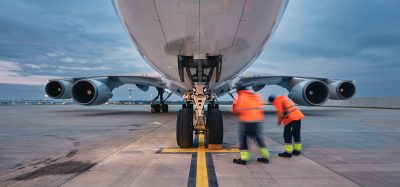Heathrow Airport has successfully incorporated SAF into its flight operations
- Like
- Digg
- Del
- Tumblr
- VKontakte
- Buffer
- Love This
- Odnoklassniki
- Meneame
- Blogger
- Amazon
- Yahoo Mail
- Gmail
- AOL
- Newsvine
- HackerNews
- Evernote
- MySpace
- Mail.ru
- Viadeo
- Line
- Comments
- Yummly
- SMS
- Viber
- Telegram
- Subscribe
- Skype
- Facebook Messenger
- Kakao
- LiveJournal
- Yammer
- Edgar
- Fintel
- Mix
- Instapaper
- Copy Link
Posted: 3 June 2021 | International Airport Review | No comments yet
Ahead of the 47th G7 Summit, Heathrow has successfully incorporated SAF into its main fuel supply and will blend it with traditional jet fuel for use across its flights.


London Heathrow Airport (LHR) has announced that it has successfully incorporated sustainable aviation fuel (SAF) into its operation, ahead of the 47th G7 Summit on 11 June to 13 June 2021 in the UK.
Working alongside Vitol Aviation and Neste MY Sustainable Aviation Fuel™, SAF will be incorporated into the airport’s main fuel supply on 3 June 2021, and blended for use across flights operating at Heathrow for the following few days.
Whilst the fuel supply may be comparatively small – equivalent to fuelling five to 10 short haul flights – this commercial delivery will establish proof of concept at the UK’s largest airport. Achieving this milestone is a critical first step in demonstrating to the UK government that the technology will work in reducing carbon from aviation, so long as the correct policy framework to incentivise take up at scale is achieved.
Vitol Aviation’s expertise in the specialist handling of jet fuel will be combined with Neste’s market-leading SAF production capabilities. Neste MY SAF is produced 100 per cent from renewable and sustainable waste and residue raw materials, such as used cooking oil and animal and fish fat waste. Neste MY Sustainable Aviation Fuel in its neat form and over the lifecycle reduces up to 80 per cent of greenhouse gas emissions (GHG) compared to fossil jet fuel use.
Increasing the use of SAF is the key tool in the decarbonisation of aviation. Together with other technologies, it offers a pathway to achieving net zero aviation in line with the Paris Agreement. As COP26 in Glasgow approaches (1 November to 12 November 2021), Heathrow has expressed that now is the moment for the UK government, investors and industry to collaborate in scaling-up the use of SAF to ensure real momentum in this decade.
This announcement marks the next step in Heathrow and the UK aviation sector’s plan for net zero flying. To achieve the rapid scale up of the production of SAFs, Heathrow has called for the UK government to set escalating mandates that requires a minimum of 10 per cent SAF use by airlines by 2030, increasing to at least 50 per cent by 2050. This should be alongside commercial incentives for airlines to stimulate demand and foster investment, and to help to ensure that the UK is at the forefront of SAF production.
Heathrow has already been engaging with partners, including airlines, on committing to SAF so that the UK’s hub can achieve its objective to become one of the most sustainable airports in the world. Currently, 58 per cent of Heathrow’s airlines by air traffic movements have committed to 10 per cent SAF usage by 2030. The Committee on Climate Change’s most optimistic projection for SAF usage by 2030 was seven per cent, demonstrating that Heathrow flights are already 84 per cent on the way towards this projection.
The first delivery of SAF at Heathrow in June 2021 is therefore a pivotal and historic moment. The type of SAF being used is called HEFA (Hydrotreated Esters and Fatty Acids), which can be made from vegetable oils, waste oils or fats. The HEFA being used at Heathrow is made from waste (such as used cooking oil), residues (such as fish fat waste from the food processing industry) and sustainably-sourced vegetable oils.
Heathrow’s Chief Executive Officer, John Holland-Kaye, said: “We are delighted that Heathrow is the first major UK airport to successfully incorporate sustainable aviation fuels into its operation. As we get ready to welcome the world to the G7, we can demonstrate how this technology can significantly cut carbon from aviation, whilst protecting its benefits. The UK government now has an opportunity to create a new British growth industry by backing sustainable aviation fuel production and also be leaders in the race to a net zero 2050. Now is the time for less talk and more action, and Ministers should set an escalating mandate to blend SAF into fuel and provide incentives that are stable over five to 10 years to foster investment in production, with a target of 10 per cent by 2030 and at least 50 per cent by 2050.”
Related topics
Aircraft, Airside operations, Emissions, Sustainability, Sustainable Aviation Fuel (SAF), Sustainable development


















